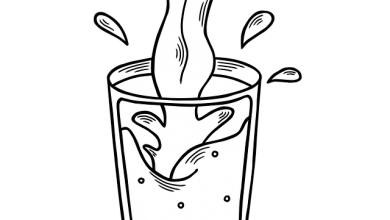How and why Tea Cures a Headache

Tea is more than just a popular hot beverage in the winter. This is a tradition and ritual in societies all throughout the world for thousands of years, and it still is now. It was first consumed in China, probably as early as 2737 B.C., and then spread to Japan, Holland, and finally the rest of Europe. It was initially introduced to America by Dutch settlers around 1650. Although tea was substantially taxed at first, Britain was one of the last European countries to accept it.
Tea began as medication and evolved into the famous beverage that it is today. Its antioxidant potency has been found by modern man, and its preventative health advantages cannot be overstated. Health benefits include decreasing stress, protecting us from all chronic diseases such as Alzheimer’s and Parkinson’s, strengthening the immune system, fighting cholesterol, and the naturally stimulating effect of L-Theanine – all of which are needed for a 21st-century lifestyle.
Tea drinkers have recently rekindled their enthusiasm in the beautiful plant, appreciating its refinement and natural goodness once more. The act of pouring a cup of tea elicits a strong emotional response. A cup naturally encourages social interaction or quiet reflection in an individual.
There are certain advantages to drinking Tea.
- It can help you work out longer. Green tea extract’s catechins (antioxidants) have been discovered to improve the body’s ability to burn fat as fuel, resulting in increased muscle endurance.
- Tea consumption may lower the risk of a heart attack. This may also aid in the prevention of cardiovascular and degenerative disorders.
- This hydrates the body (despite the caffeine content!).
- Regular consumption may help to mitigate some of the detrimental effects of smoking, as well as reduce the incidence of lung cancer (good news, obviously, but not a justification for cigs).
- People with Type 2 diabetes may benefit from it. Green tea components may help diabetics metabolise glucose more effectively, according to research.
Although there are still some disputes over how long tea should be steeped for maximum benefit and how much tea should be consumed, dietitians agree that any tea is good tea. Despite this, many prefer brewed teas to bottled teas in order to avoid the added calories and sweets.
Tea’s purported health advantages include:
- Green
In this antioxidants may inhibit the growth of bladder, breast, lung, stomach, pancreatic, and colorectal cancers; prevent artery-clogging, burn fat, counteract oxidative stress on the brain, reduce the risk of neurological disorders such as Alzheimer’s and Parkinson’s diseases, reduce the risk of stroke, and improve cholesterol levels.
- Black
It is made from fermented leaves, has the highest caffeine level, and is used to make flavored teas such as chai. Black tea has been found in studies to protect the lungs from damage caused by cigarette smoke. It may also lower the chance of a stroke.
- White
It is unfermented and uncured. When compared to highly processed teas, white tea had the most effective anticancer effects, according to one study.
The practice of dealing with life’s issues over a lovely cup of tea is now scientifically valid. Caffeine-containing beverages, such as coffee, or soda, can help relieve headaches. Caffeine has certain headache pain relievers because it may boost their effectiveness. Caffeine in tea and coffee has been shown in studies to ease aches and pains as quickly as painkilling medicines According to experts, the findings show that a cup of tea can help relieve tight, worrying headaches.
Herbal teas’ anti-inflammatory and antioxidant characteristics will soothe your nerves and brain, especially if you’re experiencing nausea or vomiting. Caffeine can also cause headaches for some people, so if you’re one of them, there’s yet another reason to try herbal teas to relieve a headache.
Here are some of the most effective herbal teas for treating headaches:
- Tea made with chamomile flowers
- ginger
- lemon
- peppermint
- cloves
- feverfew
While most people are fine drinking up to six cups per day, some herbal teas contain herbs that may cause allergic reactions in some people.





